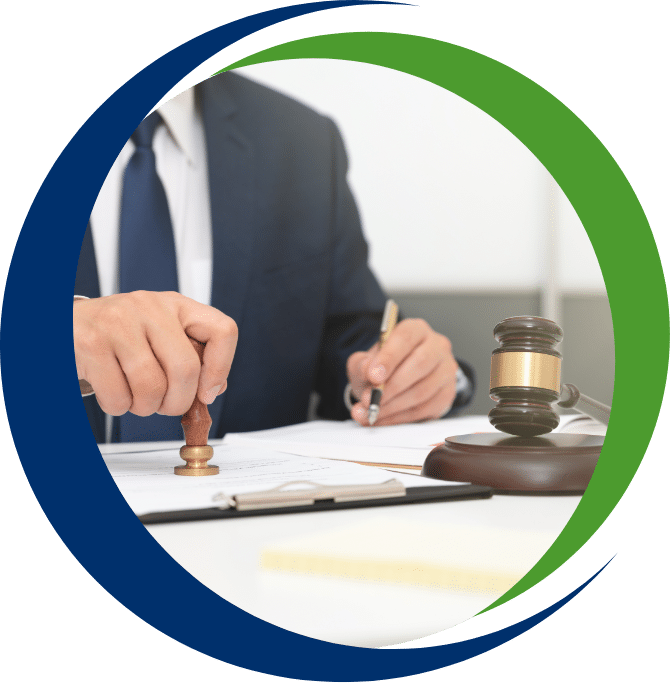
Power of Attorney
A Power of Attorney is a legal document that allows you to nominate a person or trustee organisation (non-personal entity) to manage your assets and personal financial affairs. There are two types; A General Power of Attorney and an Enduring Power of Attorney.
A General Power of Attorney remains active only while you possess the mental capacity to make your own decisions. Whereas an Enduring Power of Attorney remains active even if you lose the ability to make decisions for yourself. This is common when an individual’s mental capacity is expected to change due to illness or similar.
Who can I appoint as a Power of Attorney?
Always consider your choice carefully, your Power of Attorney should posses the ability act in your best interest in all situations. You can appoint anyone over the age of 18 years. Friends or family are common choices. Choose someone that you can trust to act in accordance with your best wishes and values. Also consider if that person will have the time and capacity to take on the role. We encourage you to discuss the matter with them to make sure they are comfortable acting on your behalf.
Where a friend or family member may not be suitable, you can appoint a solicitor or the NSW Trustee & Guardian. Trustee organisations are also permitted.
In the absence of a Power of Attorney a court or tribunal may appoint someone for you.


What can a Power of Attorney do?
A Power of Attorney can act on your behalf in the following circumstances:
- Paying Bills
- Buying, selling and leasing your home
- Selling of personal assets
- Transacting on bank accounts
- Managing investments
Why should I consider a Power of Attorney?
A Power of Attorney is a valuable tool if you foresee circumstances that may prevent you from being able to manage your personal affairs. They will be able to act in the event of temporary or permanent loss of capacity. It is important to have a Power of Attorney in place before you actually need it. Your circumstances will help determine the type of Power of Attorney most suited.
In the absence of a Power of Attorney a court or tribunal may appoint someone for you.
Are there any limitations of a Power of Attorney?
You can always set specific limitations for your Power of Attorney. Carefully consider the matters you would like your Power of Attorney to act on and during what time period. For example they may only pay bills or transact on your account while you are overseas or receiving medical treatment.


When can’t I assign a Power of Attorney?
A Power of Attorney cannot be granted once you have lost mental capacity.
Can I cancel a Power of Attorney?
Yes. There may be instances where you wish to cancel (revoke) or change your Power of Attorney. Your relationship with your attorney may have changed or the person is no longer suitable for the role.
Your revocation of Power of Attorney should be made in writing to your attorney to advise them of the change. Notifying any banks, businesses and organisations of the change is recommended.
If your Power of Attorney was registered with the NSW Land Registry Services you will need to lodge a revocation as well. Further information is available on the NSW Trustee and Guardian website here.
Enduring Guardianship
An Enduring Guardian can make decisions for you in the areas of accommodation, health and lifestyle, but not assets or personal financial affairs.
Both Power of Attorney and Enduring Guardianship, cease to be active in the event of your passing. This is when your last will and testament and estate planning take affect.
Who can I appoint as an Enduring Guardian?
Always consider your choice carefully, your Enduring Guardian should posses the ability act in your best interest in all situations. You can appoint anyone over the age of 18 years. Friends or family are common choices. Choose someone that you can trust to act in accordance with your best wishes and values. Also consider if that person will have the time and capacity to take on the role. We encourage you to discuss the matter with them to make sure they are comfortable acting on your behalf.
It is possible to appoint more than one Enduring Guardian where circumstances require. Acting capacity can also be given and determines if they must act jointly (in agreement) or severally (able to act individually) or a combination of the two.
Substitute Enduring Guardians are also able to be appointed in the event of the primary guardian no longer being able to fulfil their role.


Why should I consider an Enduring Guardian?
Circumstances change and your ability to make important decisions can be affected due to illness, injury or disability. Having an Enduring Guardian will allow matters related to your health and accommodation to be managed by someone you have chosen.
Where an Enduring Guardian has not been appointed a court or tribunal may appoint someone for you.
Limitations of an Enduring Guardian?
An Enduring Guardian is not permitted to act on:
- Matters that are illegal
- Writing or amending a will
- Consent to medical and dental treatment the principle objects
- Special medical treatment
Substitute medical and dental consent is available from the NSW Trustee and Guardian.
When can’t I assign an enduring guardian?
An Enduring Guardian cannot be granted once you have lost mental capacity.
Can I cancel an enduring guardian?
Yes. There may be instances where you wish to cancel (revoke) or change your Enduring Guardian. Your relationship with your guardian may have changed or the person is no longer suitable for the role.
Revocation of Enduring Guardian can be made via the NSW Trustee and Guardian website.
Communicate your changes in Enduring Guardian to close family and friends.
In the event of getting married, your Enduring Guardian will be automatically revoked.

Enquire with Carl today:
Carl Buda
LAWYER - PARTNER ADMITTED 2001
Carl gained the majority of his knowledge working with and advising in property development matters. This knowledge forms the solid foundation for helping clients in all legal matters relating to the sale and purchase of property.
From first home buyers to seasoned investors and developers, Carl’s experience allows potential issues to be identified, while reasonable and practicable solutions are applied to achieve positive results for his clients.